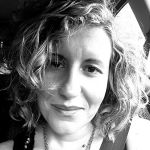Cost: £165
Book a place
Overview
This online evening course explores the fiction/nonfiction divide and films which challenge this divide, blending fact and fiction.
Sessions will be held on Thursday evenings, from 7pm to 9pm, over 7 weeks.
This course is run by the Open City Docs School, based in UCL's Department of Anthropology.
Background
By blending fact and fiction, some films draw on the stylistic traditions of both documentary and fiction films in various ways, at one time distancing its spectators from objective truth while on the other shedding a light on a kind of intensified reality.
If the history of documentaries as a film genre is a history of addressing the question of what constitutes the representation of social reality, and the fictional narrative film is an attempt to create an imaginative conception of what is called reality, recent contemporary examples have been challenging this divide in multiple ways, pushing the boundaries of the two genres to the extreme and merging one into the other. Nevertheless, far from being just a contemporary phenomenon, the blurring of these forms (documentary and fictional narrative) is a creative and interpretive challenge that filmmakers have been concerned with since the early days of cinema.
According to classic works like Walton’s Mimesis as Make-Believe (1990) and Currie’s The Nature of Fiction (1990), fiction essentially involves imagining whereas nonfiction essentially involves believing. However, more recent works like Friend’s Fiction as a Genre (2012) and Matravers’ Fiction and Narrative (2014) have challenged this conception of the fiction/nonfiction divide, opening a debate both in the community of academics and practitioners.
This course will explore the interstices between the two, exploring a metaphorical truth, one that resonates without relying solely on empirical representation, opening serious questions about truth and our positioning towards it.
Who it's for
This course is open to anyone who is interested in the subject. You don't need any particular knowledge or experience to attend.
Course content
Session 1: Working with real people in 1950s post war Italian cinema and new waves
Vittorio de Sica, Pierpaolo Pasolini, Roberto Rossellini, Liliana Cavani, Cecilia Mangini
Leonardo di Costanzo, Pietro Marcello, Alice Rohrwacher.
Session 2: Mirrors of reality in 1960s French new wave
Chris Marker, Agnes Varda, Jean Luc Godard.
Session 3: Challenging the audience’s role in 1990s post revolution Iranian cinema
Abbas Kiarostami, Mohsen Mahmalbaf, Samira Mahmalbaf, Jafar Panahi.
Session 4: Playing with reality in 2000s post communist Romania
Radu Jude, Christi Puiu, Adina Pintilie, Cristian Mungiu.
Session 5: Expanding time and space in contemporary Latin American cinema
Lucretia Martel, Dominga Sotomayor, Carlos Reygadas, Camilo Restrepo.
Session 6: Within and beyond reality in contemporary UK
Mike Leigh, Ken Loach, Penny Woolcock, Clio Barnard, Andrea Arnold, Steve McQueen.
Session 7: New Waves between anthropology and art
Joshua Oppenheimer, Ulrich Seildl, Salome’ Llamas
Course team

Ludovica Fales
Filmmaker and artist Ludovica Fales has been making independent documentary and experimental films since 2007, following on a BA-MA in Philosophy in Rome and Berlin. After an MA in Documentary Direction at the NFTS in 2011, she travelled around the Mediterranean area, across the Balkans and in the Middle East, making films and working closely and collaboratively with vulnerable communities around the world and using filmmaking as a conflict resolution tool.
Her award winning feature films "The Real Social Network", "Letters from Palestine", "Fear and Desire" etc...were screened in festivals around the world . With experience as an AP on projects for Al Jazeera and BBC, she worked collaboratively with various artists and filmmakers, as well as with European Cultural Foundation and Basis of Aktuelle Kunst on a film portrait about Forensic Architecture.
Book a place
Course information last modified: 27 Jun 2023, 16:52
 Close
Close

